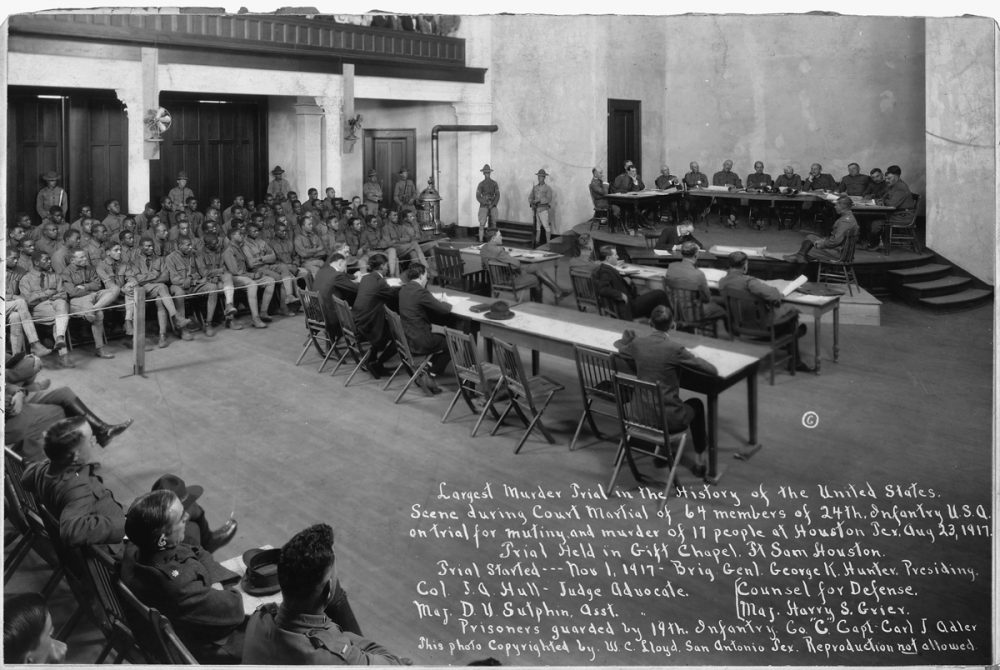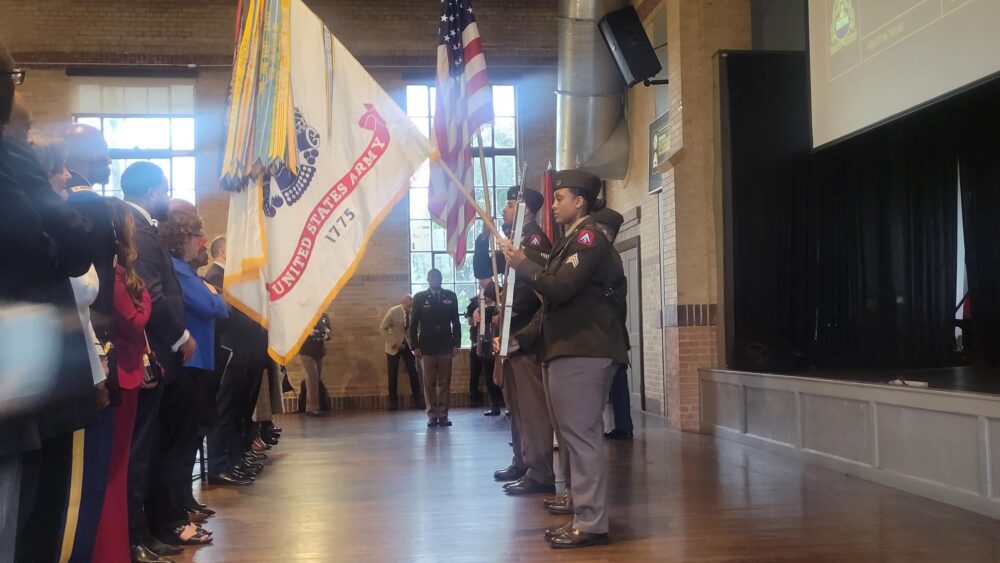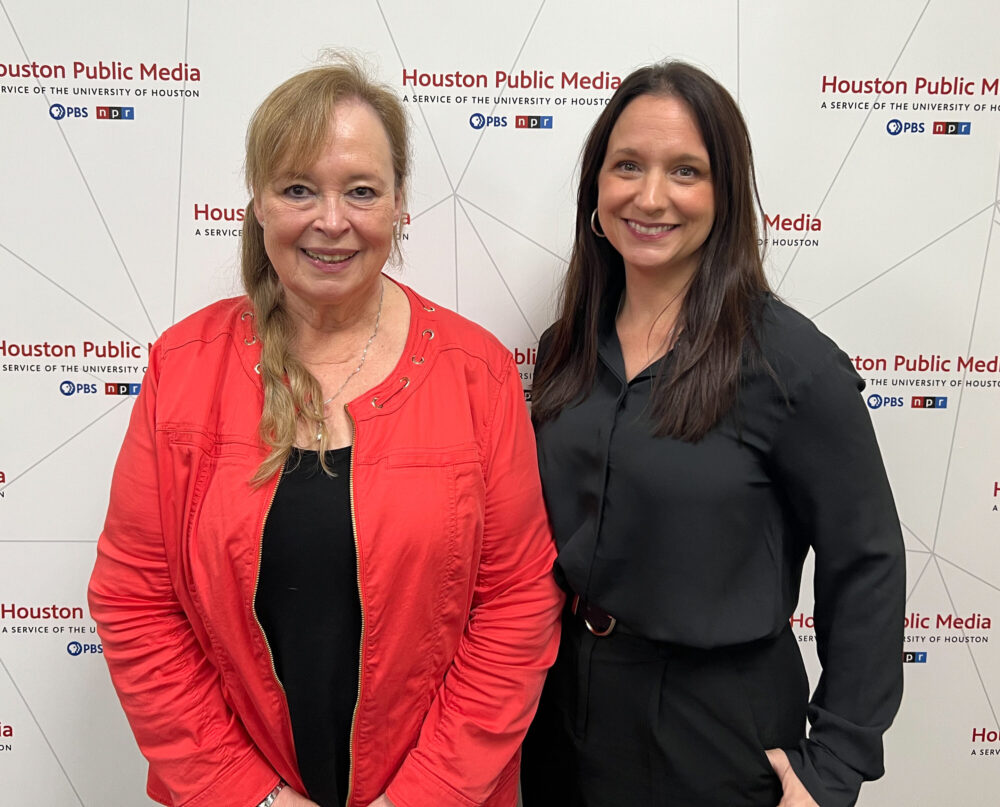
Listen
We learned last week the U.S. Army was officially recognizing the overturned convictions of 110 Black soldiers stationed at Camp Logan here in Houston in 1917.
As first reported in the Houston Chronicle, the move set aside the convictions of all soldiers from the 3rd Battalion, U.S. 24th Infantry Regiment, including 19 who were executed at Fort Sam Houston on mutiny, murder, and assault convictions following the 1917 Houston Riots.
The riots came on the heels of months of racial tension between members of the 24th and the Houston community and police.
But what did it take to get these convictions overturned?

In the audio above, we learn about some of the research and groundwork it took from two guests: Ashley Cromika is a Houston attorney who researched the cases of the soldiers while a student at South Texas College of Law Houston; and Catherine Greene Burnett is vice president and associate dean for clinical studies who oversaw some of the research at the law school.
Cromika was one of several students who dug into the stories of some of the Camp Logan soldiers while she was involved in the school’s Actual Innocence clinic. She pored over some 2,500 pages of transcripts from their courts martial.
“And [I] just kind of got a sense that something wasn’t right, and that we had the ability to try to work towards getting justice for these men who were treated so poorly,” she said.


 72 °F
72 °F